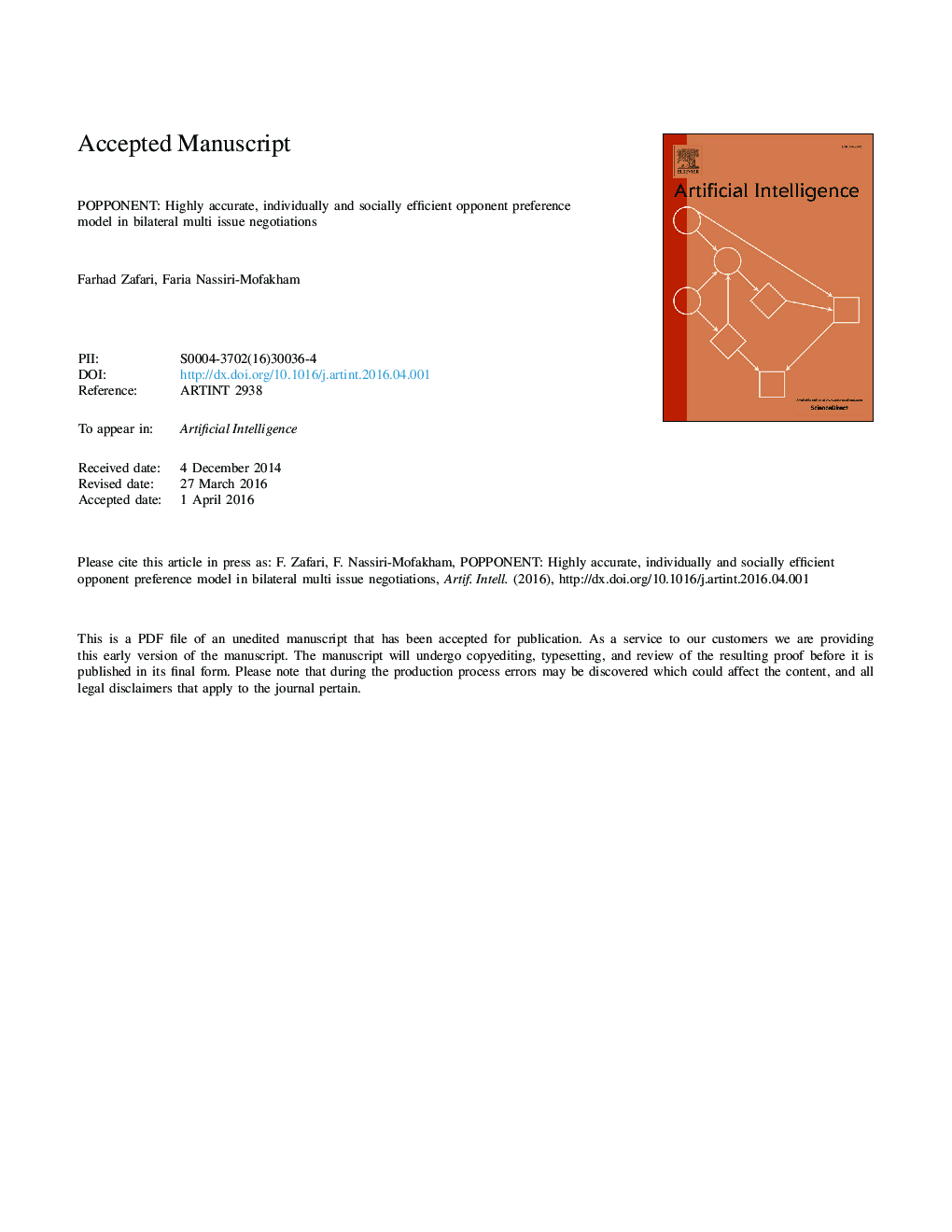| Article ID | Journal | Published Year | Pages | File Type |
|---|---|---|---|---|
| 6853093 | Artificial Intelligence | 2016 | 53 Pages |
Abstract
In automated bilateral multi issue negotiations, two intelligent automated agents negotiate on behalf of their owners regarding many issues in order to reach an agreement. Modeling the opponent can excessively boost the performance of the agents and increase the quality of the negotiation outcome. State of the art models accomplish this by considering some assumptions about the opponent which restricts the applicability of the models in real scenarios. In this study, a less restricted technique where perceptron units (POPPONENT) are applied in modeling the preferences of the opponent is proposed. This model adopts the Multi Bipartite version of the Standard Gradient Descent search algorithm (MBGD) to find the best hypothesis, which is the best preference profile. In order to evaluate the accuracy and performance of this proposed opponent model, it is compared with the state of the art models available in the Genius repository. This results in the devised setting which approves the higher accuracy of POPPONENT compared to the most accurate state of the art model. Evaluating the model in the real world negotiation scenarios in the Genius framework also confirms its high accuracy in relation to the state of the art models in estimating the utility of offers. The findings here indicate that this proposed model is individually and socially efficient. This proposed MBGD method could also be adopted in other practical areas of Artificial Intelligence.
Related Topics
Physical Sciences and Engineering
Computer Science
Artificial Intelligence
Authors
Farhad Zafari, Faria Nassiri-Mofakham,
